Cannabis Cultivation Virtual Conference Part 5
Every Growroom Has Mold! Technology Spotlight Sponsored by CannaAirCare
By Ivor Noble, Founder and CEO of CannaAirCare
The all natural preventative against airborne mustiness!




The stage is set: cannabis legalization is rolling out around the world. With legalization comes regulations and smart companies will adapt to make new requirements work for them. In the end, our shared goal (as industry, consumers and government) is the same: provide safe, high-quality, reliable products. This is where traceability comes in.
If a cannabis product isn’t safe (cannabis is vulnerable to the same kinds of hazards as most food products), the reputation of the entire industry suffers. Earning public trust is the first step toward favorable government regulations. With upcoming decisions that will decide taxation and distribution, it’s more important than ever that cannabis producers can react quickly if recalls should occur – and that means taking traceability seriously.
A crucial key to producing safe and high-quality cannabis products is detailed traceability. Many states require cannabis businesses to use systems like Metrc, a technology that uses RFID tags to track cannabis from seed to sale to ensure nothing is diverted to the black market. However, Metrc focuses only on the chain of custody, not on the safety or quality of the product.
Ensuring a secure supply chain is only one piece of the cannabis puzzle. Public health hazards like toxic chemical contamination, mold growth and pathogenic contamination introduced by pests or improper employee handling need to be controlled in order to earn public trust and comply with regulations. State-mandated traceability systems don’t address these imperatives, so an effective safety technology that includes traceability, in addition to mandated systems like Metrc, is absolutely necessary to complete the cannabis picture.
Cannabis professionals are aware of the regulatory scrutiny the industry is under and many have turned to automation technology to help stand up to this scrutiny, as well as collect and manage all the data necessary for compliance. Automating data collection pays off in several ways. For one, interconnected, real-time IoT technologies that are accessible to the entire facility 24/7 are giving cannabis businesses the tools they need to create the best possible products now, as well as providing them with the data they need to make their products even better. Since frequent audits are a part of the legalization transition, automation also makes preparing for audits and inspections a matter of minutes instead of days.
Ron Sigman, chief executive officer of marijuana compliance consulting firm Adherence Corp. and former investigator for the Marijuana Enforcement Division (MED) in Colorado, lists the most common violations for cannabis businesses that he found during more than 200 audits in an interview for Marijuana Business Daily. These violations include:
Adopting safety and traceability concepts that the food industry developed over many decades can yield huge benefits for cannabis businessesA proper cannabis traceability technology mitigates these problems by providing notifications of inventory inconsistencies, certification expirations and more. Traceability for cannabis must be able to handle the complexities of procedures like terpene extraction and injection. With the rapid growth of the industry, it must be able to set targets and track actuals. It should track, not just cannabis plants and related derivatives, but also every other ingredient, material and packaging material used during production. There must be monitoring at each stage of production and a system in place to ensure all employee training is up to date. Preventative maintenance must be scheduled and tracked and hazards must be identified and controlled. In the event of an audit or recall, precise mass-balance calculations must be available to account for every gram of product, including non-cannabis ingredients like coconut oil and packaging materials like pouches and labels.
 Detailed traceability can make the difference between a cannabis business keeping their license or being shut down. “You have to make a diligent effort to stay compliant 365 days out of the year, because you never know when a regulatory agency is going to come knocking on your door,” says Sigman. Knowing exactly what went wrong when and where allows a company to make changes so failures don’t happen again.
Detailed traceability can make the difference between a cannabis business keeping their license or being shut down. “You have to make a diligent effort to stay compliant 365 days out of the year, because you never know when a regulatory agency is going to come knocking on your door,” says Sigman. Knowing exactly what went wrong when and where allows a company to make changes so failures don’t happen again.
The standard sought by most in the cannabis industry is only GMP (Good Manufacturing Practice) certification, which is actually the lowest level of certification possible in food production. With the public demand for edibles and concentrates on the rise and major retailers scrambling for seats at the table, the demand for transparency from growers and manufacturers will increase. Cannabis companies will soon find that GMP compliance simply won’t be enough to earn trust and expand their market share, especially when it comes to edibles and concentrates.
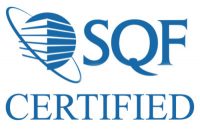 “Every day, patients express interest and assurance of wanting to know that the foods and medicines they consume are safe and of the best quality available,” says Lindsay Jones, president of Curaleaf Florida, the first medical cannabis company in Florida to achieve SQF Certification. Safe Quality Food (SQF) certification ensures a company meets the highest levels of safety and quality on a reliable basis. Curaleaf has set a new bar in the industry that others will be compelled to follow and they should be congratulated for their proactive vision.
“Every day, patients express interest and assurance of wanting to know that the foods and medicines they consume are safe and of the best quality available,” says Lindsay Jones, president of Curaleaf Florida, the first medical cannabis company in Florida to achieve SQF Certification. Safe Quality Food (SQF) certification ensures a company meets the highest levels of safety and quality on a reliable basis. Curaleaf has set a new bar in the industry that others will be compelled to follow and they should be congratulated for their proactive vision.
Adopting safety and traceability concepts that the food industry developed over many decades can yield huge benefits for cannabis businesses, but it will be interesting to watch the technology evolve to accommodate the specific needs of retailers and consumers. Imagine a traceability system that ensures safety and quality while also tracking consistency and potency.
The emerging cannabis industry is facing challenging hurdles on its path to widespread legalization and acceptance but the forecast is sunny – for companies who are prepared.
New Frontier Data CEO Giadha Aguirre De Carcer, explains that California’s “legal (cannabis) industry is forecast to grow from $2.8 billion in 2017 to $5.6 billion in 2020. That spending will be increasingly directed at products and retailers who understand and serve the market’s evolving tastes and preferences.” That includes implementing comprehensive traceability systems to deliver safe, quality product.

The 6thAnnual Food Safety Consortium Conference & Expo has announced a series of talks focused on cannabis. In addition to the categories such as Operations, Detection, Compliance and Supply Chain, the Call for Abstracts now includes a fifth category in this year’s program: Cannabis Quality.
The Cannabis Quality series will feature presentations by subject matter experts in the areas of regulations, edibles manufacturing, cannabis safety & quality as well as laboratory testing. The Food Safety Consortium itself is hosted by our sister publication, Food Safety Tech, but the Cannabis Quality series will be co-hosted by Cannabis Industry Journal as well.

Citing the need to address safety in a burgeoning market, Rick Biros, conference director, believes education is key to helping the cannabis industry mature. “As the cannabis industry evolves, so does the need to protect the consumer,” says Biros. “Just as we protect the safety of our food supply chain, it is important to educate the cannabis industry about protecting their supply chain from seed to sale. Through these educational talks, we want to help bridge that gap, hosting a forum for those in the cannabis industry to interact with food safety professionals.”
The 2018 Food Safety Consortium Conference & Expo will be held November 14–16 in Schaumburg, Illinois. The event is a top food safety conference that features Food Safety and Quality Assurance (FSQA) industry experts and government officials.
The conference focuses on food safety education and networking, providing attendees information on best practices and new technology solutions to today’s food safety challenges. Previous keynote speakers have included food safety leaders such as Stephen Ostroff, M.D., deputy commissioner for Foods and Veterinary Medicine, U.S. Food and Drug Administration and Frank Yiannis, vice president of Food Safety at Walmart and author of Food Safety Culture: Creating a Behavior-Based Food Safety Management System.
Before submitting an abstract, following are a few points to keep in mind:![]()
To see the Call for Abstracts and submit a presentation for consideration, click here. The deadline for submissions is May 31, 2018. The conference will notify everyone who submits an abstract on the status of acceptance by June 15.

The American Association for Laboratory Accreditation (A2LA) announced recently the accreditation of The New Frontier Research (TNFR) laboratory to ISO/IEC 17025:2005. TNFR, based in Wasilla, Alaska, was previously evaluated by A2LA for competence and proficiency to perform the minimum tests required by Alaska.
TFNR is now the first recreational cannabis-testing laboratory in Alaska accredited to ISO/IEC 17025 standard. According to Roger Brauninger, A2LA biosafety program manager, this accreditation is a sign of attention to thorough science. “Cannabis testing laboratories that have gained ISO/IEC 17025 accreditation have demonstrated their competence and commitment to rigorous science,” says Brauninger. “In the greatly scrutinized recreational cannabis industry, we are pleased to have granted the first accreditation of its kind in Alaska.”

According to the press release, the ISO/IEC 17025 accreditation is the most significant third-party lab accreditation an organization can receive. The standard confirms labs have management, quality and technical systems designed for accurate and repeatable analyses, in addition to proper administrative processes for testing.
Jessica Alexander, technical director of the TNFR laboratory, says this is the first step in many to researching the medical properties of cannabis. “By achieving ISO/IEC 17025 accreditation, The New Frontier Research believes that it advances the cannabis industry as a whole so that we can conduct legitimate research to unlock the amazing potential that this plant has for development of more effective medicines to address problems like opioid dependence and pediatric seizures,” says Alexander.
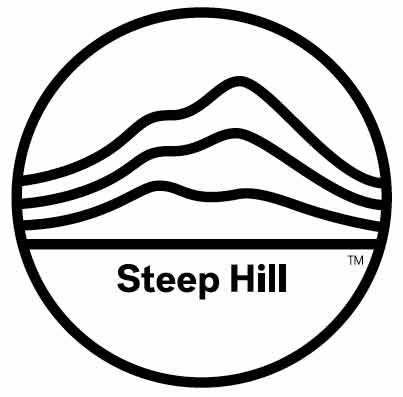
According to a press release, the Steep Hill team announced they are expanding internationally in a big way on Monday. Steep Hill, a well-known cannabis lab-testing and research company with roots in California, announced plans for licensing agreements in Mexico, Germany, Spain, France, Italy, Switzerland and the United Kingdom.
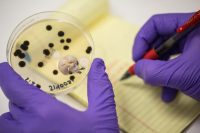
The Canadian branch of the company, Steep Hill Canada, will lead the expansion efforts into Mexico and the six European Union countries. According to Martin Shefsky, chief executive officer of Steep Hill Worldwide, they are actively looking for other operating partners in new areas as well. “I’m extremely pleased at the opportunity to partner with Steep Hill to bring safe cannabis and scientific integrity to emerging international markets,” says Shefsky. “I anticipate that before long, full legalization will be implemented throughout the European Union and our presence will enable growers, producers, processors, and retailers – to offer standardized tested cannabis for patients and consumers across the European Union, while also enabling us to create a platform to share scientific and technology developments throughout the global cannabis market.”
In 2016, Steep Hill announced new licensing agreements to expand into Washington D.C. and Pennsylvania. In August of 2017, they expanded to Hawaii and several months later announced their expansion into Oregon. “It is an exciting time for us and our investors, as we pursue this first-mover advantage in anticipation of new global cannabis import-export markets,” says Jmîchaeĺe Keller, chief executive officer and chairman of the board of Steep Hill, Inc.
“In unregulated markets, we want to be on the ground supporting the legalization and regulatory process, helping regulators avoid making the mistakes that other jurisdictions have made in the past,” Keller says. “We believe that our role as the industry standard, allows us to leverage our world-class scientific knowledge and state of the art technology to help regulators provide confidence in the marketplace that the cannabis patients consume, is both safe and effective. We look forward to collaborating closely with Martin and his group to strive for this gold standard, across all international borders.”
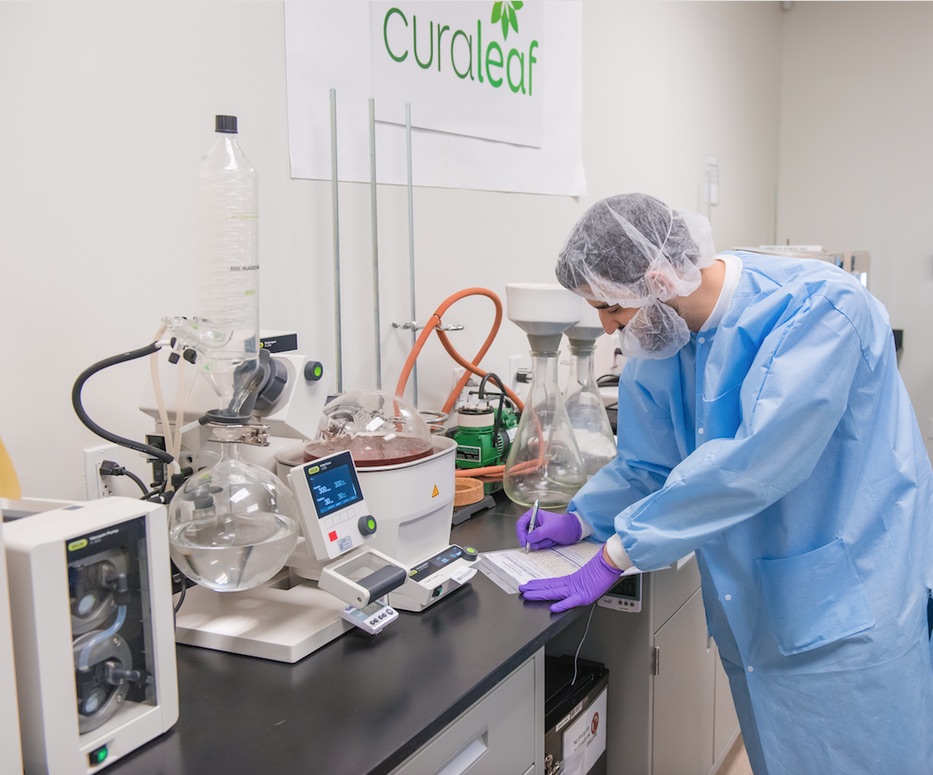
Last week, Curaleaf, a medical cannabis producer and processor in Miami, Florida, announced they have earned the Safe Quality Food (SQF) Level II certification. In the press release, they claim they are the first and only medical cannabis company in the state to achieve that certification.
That SQF certification is a program recognized by the Global Food Safety Initiative (GFSI), which is a global collaborative effort to get food companies practicing food safety management on the same high quality standards around the world. GFSI is a major international food quality and safety program where some of the largest food manufacturers and processors in the world participate.
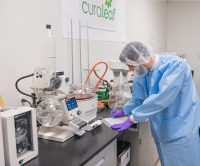
Curaleaf’s products include a line of low-THC and full strength medical cannabis products. They have dispensaries in Miami, Lake Worth, Fort Myers and St. Petersburg, as well as delivery of products from Jacksonville south to Key West.
According to Lindsay Jones, president of Curaleaf Florida, patients ask frequently about the level of safety of cannabis products. “Every day patients express interest and assurance of wanting to know that the foods and medicines they consume are safe and of the best quality available,” says Jones. “This SQF Level II certification that Curaleaf has earned is particularly important for patients and demonstrates that our medical marijuana processing expertise delivers superior quality products for patients in need across Florida.”
Florida’s regulations on medical cannabis producers and processors actually require a form of certification demonstrating proper food safety protocols. “Within 12 months after licensure, a medical marijuana treatment center must demonstrate to the department that all of its processing facilities have passed a Food Safety Good Manufacturing Practices, such as Global Food Safety Initiative or equivalent, inspection by a nationally accredited certifying body,” reads Rule 9 in the 2017 Florida Statute. Edibles producers in Florida “must hold a permit to operate as a food establishment pursuant to chapter 500, the Florida Food Safety Act, and must comply with all the requirements for food establishments pursuant to chapter 500 and any rules adopted thereunder.” The rules also lay out requirements for packaging, dosage and sanitation rules for storage, display and dispensing of edible products.
Looking at SQF Level II certification and GFSI could be a step in the right direction for many cannabis infused product manufacturers, as they are some of the more recognized programs in the food industry.

Last month, the Cannabis Control Commission, the regulatory body overseeing Massachusetts’ newest industry, finalized their regulations for the market. At the beginning of this month, the state began accepting applications for business licenses. Now with the full implementation of adult-use sales on the horizon, businesses, regulators, consumers and local governments are preparing themselves for the legalization of adult-use cannabis. Sales are expected to begin June 1st.
On March 29th, the Cannabis Control Commission announced their finalized rules were filed, published and took effect. Leading up to the filing, the Commission reports they held 10 listening sessions, received roughly 500 public comments and conducted 7 hearings for roughly 150 policy decisions. The license categories that businesses can apply for include cultivator, craft marijuana cooperative, microbusiness, product manufacturer, independent testing laboratory, storefront retailer, third-party transporter, existing licensee transporter, and research facility, according to the press release.
 What separates Massachusetts’ rules from other states’ rules are a few of the license categories as well as environmental regulations, as Kris Kane highlights in this Forbes article. Experimental policies, like the microbusiness and craft marijuana co-op licenses, Kane says, are some tactics the Commission hopes may help those affected by the drug war and those who don’t have the capital and funding required for the larger license types.This is a groundbreaking reform previously unseen in states that have legalized cannabis.
What separates Massachusetts’ rules from other states’ rules are a few of the license categories as well as environmental regulations, as Kris Kane highlights in this Forbes article. Experimental policies, like the microbusiness and craft marijuana co-op licenses, Kane says, are some tactics the Commission hopes may help those affected by the drug war and those who don’t have the capital and funding required for the larger license types.This is a groundbreaking reform previously unseen in states that have legalized cannabis.
The Commission will also establish a Social Equity Program, as outlined in the final rules (section 17 of 500.105). That program is designed to help those who have been arrested of a cannabis-related crime previously or lived in a neighborhood adversely affected by the drug war. “The committee makes specific recommendations as to the use of community reinvestment funds in the areas of programming, restorative justice, jail diversion, workforce development, industry-specific technical assistance, and mentoring services, in areas of disproportionate impact,” reads one excerpt from the rules (section 500.002) identifying the need for a Citizen Review Committee, which advises on the implementation of that Social Equity Program.
This is a groundbreaking reform previously unseen in states that have legalized cannabis. Massachusetts may very well be the first state to actively help victims of the prohibition of cannabis.Some municipalities are hesitant and skeptical, while others are fully embracing the new industry with open arms.
For environmental rules, Kane notes the Commission is taking unprecedented steps to address energy usage in the cultivation process, pushing the industry to think about environmental sustainability in their bottom line and as part of their routine regulatory compliance. He says the Commission mandates a 36 watts-per-square-foot maximum for indoor cannabis cultivators.
On Monday, April 2nd the state began accepting applications for businesses seeking licensure. Within a few days, nearly 200 businesses have applied. That number is expected to grow significantly over the next few weeks.
While businesses continue applying for licenses, local governments are preparing in their own way. Some municipalities are hesitant and skeptical, while others are fully embracing the new industry with open arms.
A couple weeks ago, the City Council of Springfield, Massachusetts passed a six-month moratorium on cannabis sales, citing the need for more time to draft local regulations for businesses first. “I believe the moratorium is in place to make sure that we get it right the first time,” Councilor Adam Gomez, chairman of the council’s Economic Development Committee told MassLive. “We don’t have a chance to get it right the second time. The residents of Springfield supported this.” There are also talks of a potential temporary ban in Truro, MA.
Meanwhile in the city of Attleboro, ABC6 News reports Mayor Paul Heroux is “working to make his city marijuana friendly as city councilors work to draft regulation ordinances.” In Peabody, two businesses just received approval to begin operating as medical dispensaries.

On Monday, Pennsylvania Health Secretary Dr. Rachel Levine announced plans to allow patients access to whole plant, dried flower, as well as more qualifying conditions. The move reverses the previous rule permitting dispensaries to sell only processed forms of cannabis, which some say limited access and kept costs high for patients.
According to the Marijuana Policy Project (MPP), the Department of Health approved changes to the program at a hearing on Monday, which were recommended by the Advisory Board last week. While smoking remains theoretically prohibited, patients can now access the flower for vaporization.
 The medical cannabis program in Pennsylvania has only been functional for a few months now; patients began getting access to the drug back in February of 2018. In a press release, MPP says only a small number of cultivators and dispensaries are currently operating. This fact, coupled with the need to purchase processed forms of cannabis, has created product shortages and costly medicine for patients.
The medical cannabis program in Pennsylvania has only been functional for a few months now; patients began getting access to the drug back in February of 2018. In a press release, MPP says only a small number of cultivators and dispensaries are currently operating. This fact, coupled with the need to purchase processed forms of cannabis, has created product shortages and costly medicine for patients.
It is expected that this move could help alleviate some of those problems in the state’s new program. “Allowing cannabis in its natural, flower form and expanding the list of qualifying conditions will have a huge positive impact on seriously ill Pennsylvanians,” says Becky Dansky, legislative counsel for the Marijuana Policy Project, who helped lead the legalization effort in Pennsylvania’s legislature. “By being able to provide medical marijuana in plant form, producers will be able to get medicine into the hands of patients much more quickly and for much lower cost to patients,” says Dansky. “This is vitally important for patient access right now while the program is still getting off the ground and production is not yet at full capacity. We hope these rules are promulgated as quickly as possible so even more patients will be able to find relief.”
The qualifying conditions added to the list for patients seeking medical cannabis is set to include cancer remission therapy as well as opioid-addiction therapy, which are two very notable additions. With more qualifying conditions and a potentially cheaper form of medicine, these changes could improve the program’s efficacy in treating patients.
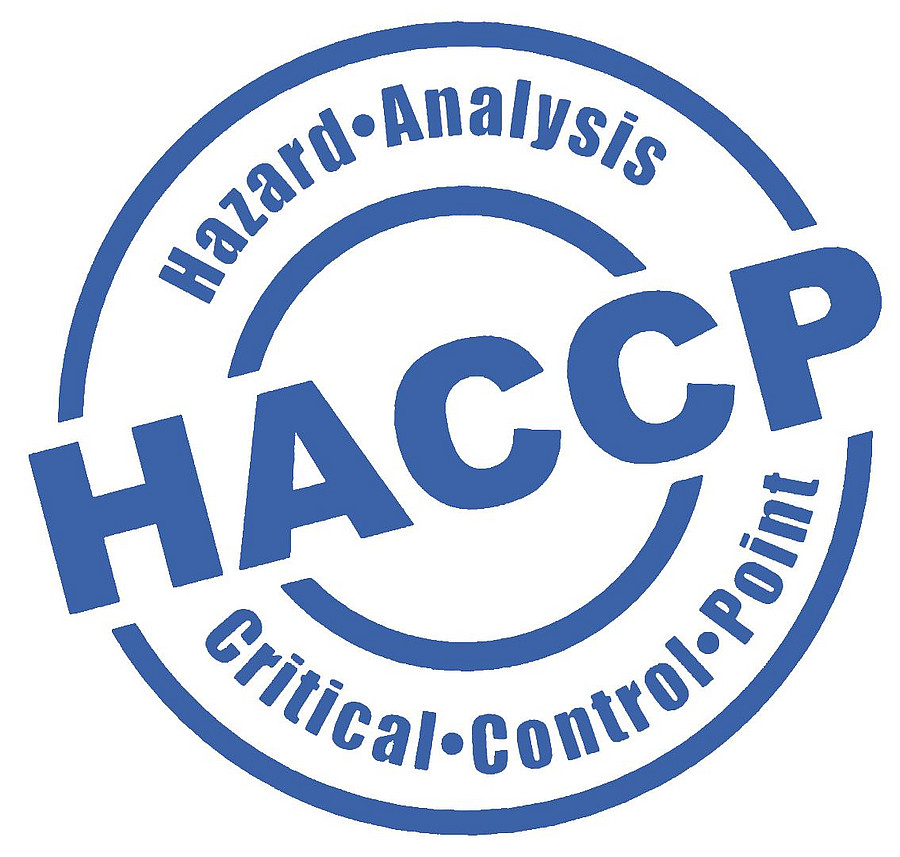
HACCP is a food safety program developed in the 1960s for the food manufacturing industry, mandated for meat, seafood and juice and adopted by foodservice for the safe serving of meals at restaurants. With state requirements for the safe production of cannabis-infused products, namely edibles, facilities may be inspected against HACCP principles. The cannabis industry and state inspectors recognize the need for safe edible manufacture. Lessons can be learned from the food industry, which has advanced beyond HACCP plans to food safety plans, starting with procurement and including the shipment of finished product to customers.
In my work with the food industry, I write HACCP and food safety plans and deliver training on food safety. In Part 1 of this series, I wrote about the identification of hazards, which is the first step in HACCP plan development. Before we continue with the next HACCP step, I will discuss Good Manufacturing Practices (GMPs). GMPs are the foundation on which HACCP is built. In other words, without GMPs in place, the facility will not have a successful HACCP program. GMPs are required in the food, dietary supplement and pharmaceutical industries, all under the enforcement of the federal Food and Drug Administration (FDA). Without federal regulation for cannabis edible manufacture, there may not be state-mandated requirements for GMPs. Let me warn you that any food safety program will not succeed without proper control of GMPs.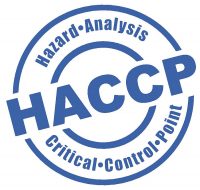
GMPs cover all of your programs and procedures to support food safety without having a direct, instant control. For example, when brownies are baked as edibles, food safety is controlled by the time and temperature of baking. A written recipe and baking procedure are followed for the edible. The time and temperature can be recorded to provide documentation of proper baking. In the food industry, this is called a process preventative control, which is critical to food safety and is part of a HACCP plan. Failure of proper time and temperature of baking not only leads to an unacceptable product in terms of quality, but results in an unsafe product that should not be sold.
Back to GMPs. Now think of everything that was done up to the steps of mixing and baking. Let’s start with personnel. Facilities for edibles have hiring practices. Once an employee is hired, the employee is trained, and training will include food safety procedures. When working at the job after training, the employee measuring ingredients will demonstrate proper grooming and hand washing. Clean aprons, hairnets, beard nets and gloves will be provided by the facility and worn by the employee. The same goes for the employee that bakes and the employee that packages the edible. One category of GMPs is Personnel.
Edibles facilities are not foodservice; they are manufacturing. A second GMP category is cleaning and sanitizing. Food safety is controlled through proper cleaning and sanitizing of food contact surfaces (FCS). The edible facility will have in place the frequency and methods for cleaning all parts of the facility- outside, offices, restrooms, break room and others. GMPs cover the general cleaning procedures and procedures for cleaning receiving, storage; what we would consider processing to include weighing, process steps and packaging; finished product storage and shipping. Management of the facility decides the methods and frequency of cleaning and sanitizing with greater care given to processing. Without proper cleaning and sanitizing, a facility cannot achieve food safety.
I could go on and on about GMPs. Other GMPs include water safety, integrity of the buildings, pest control program, procurement, sewage disposal and waste disposal. Let’s transition back to HACCP. In Part 1 of this series, I explained identification of hazards. Hazards are one of three types: biological, chemical and physical.
 At this point, I am not surprised if you are overwhelmed. After reading Part 1 of this series, did you form a food safety team? At each edibles facility, there should be at least one employee who is trained externally in food safety to the standard that foodservice meets. Classes are offered locally and frequently. When the facility is ready, the next step of training is a HACCP workshop for the food industry, not foodservice. Edibles facilities are not foodservice; they are manufacturing. Many colleges and associations provide HACCP training. Finally, at the least, one employee should attend a workshop for Preventive Controls Qualified Individual.
At this point, I am not surprised if you are overwhelmed. After reading Part 1 of this series, did you form a food safety team? At each edibles facility, there should be at least one employee who is trained externally in food safety to the standard that foodservice meets. Classes are offered locally and frequently. When the facility is ready, the next step of training is a HACCP workshop for the food industry, not foodservice. Edibles facilities are not foodservice; they are manufacturing. Many colleges and associations provide HACCP training. Finally, at the least, one employee should attend a workshop for Preventive Controls Qualified Individual.
To institute proper GMPs, go to ConnectFood.com for a GMP checklist. Did you draw up a flow diagram after reading Part 1? With a flow diagram that starts at Receiving and ends at Shipping, the software at ConnectFood.com takes you through the writing steps of a HACCP or food safety plan. There are many resources out there for GMPs, so it can get overwhelming. ConnectFood.com is my favorite resource.
The next step in HACCP development after identification of hazards is to identify the exact step where the hazard will be controlled. Strictly speaking, HACCP only covers process preventive controls, which typically start with a weigh step and end with a packaging step. A facility may also have a step where temperature must be controlled for food safety, e.g. cooling. In HACCP, there are commonly two process preventive controls:
Strictly speaking, HACCP does not include cleaning, sanitizing and supplier approval for procurement of ingredients and packaging. I hope you see that HACCP is not enough. There have been hundreds of recalls and outbreaks due to problems in non-processing steps. The FDA requires food manufactures to go beyond HACCP and follow a written food safety plan, which includes hazards controlled at these steps:
Does a cannabis edible facility honestly not care or not control for pesticides in ingredients because this is not part of HACCP? No. There are two ways for procurement of ingredients in which pesticides are controlled. Either the cannabis cultivation is controlled as part of the samebusiness or the facility works with a supplier to confirm the ingredient meets pesticide tolerances. Strictly speaking, this control is not part of HACCP. For this and many other reasons, HACCP is a good place to start the control of food safety when built on a solid foundation of GMPs. In the same way the food industry is required to go beyond HACCP with a food safety plan, the cannabis industry must go beyond HACCP.
My thoughts will be shared in a webinar on May 2nd hosted by CIJ and NEHA. I encourage you to listen in to continue this discussion.Please comment on this blog post below. I love feedback!